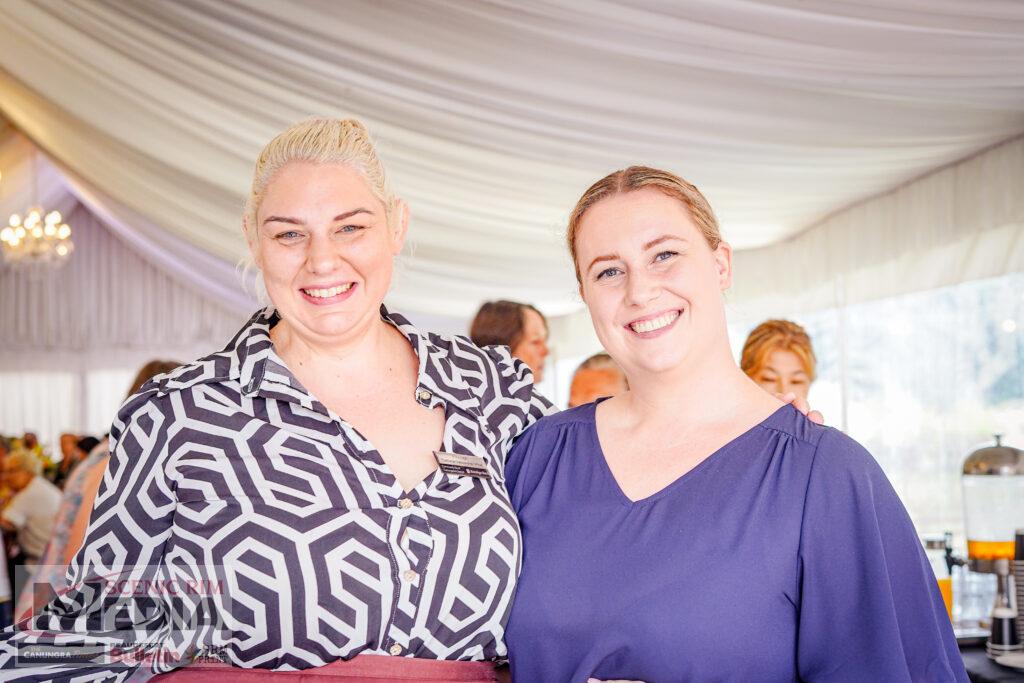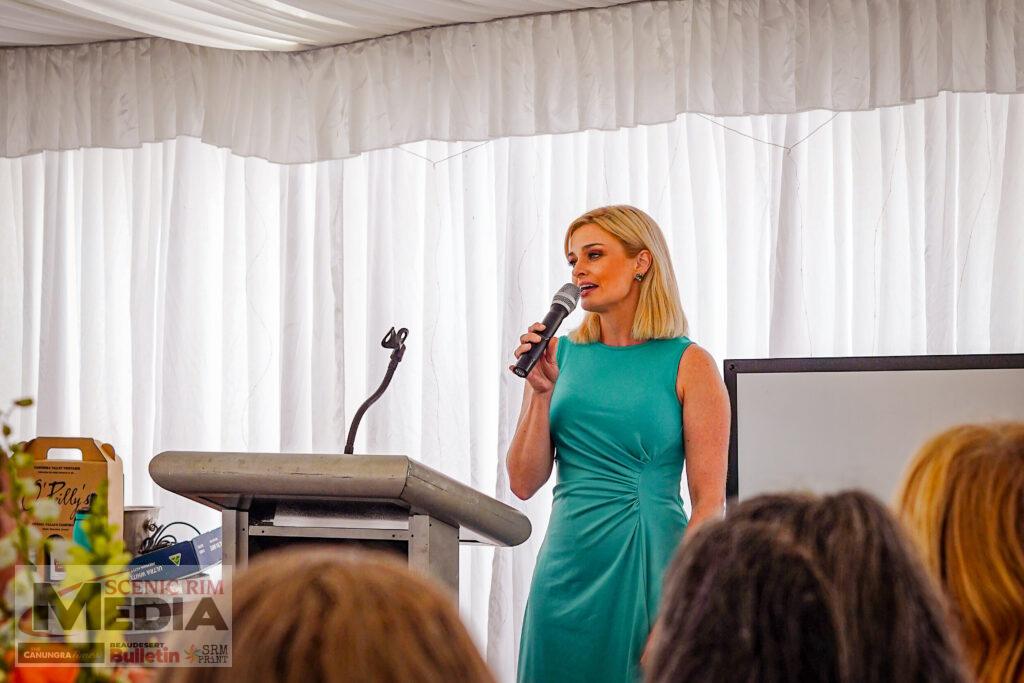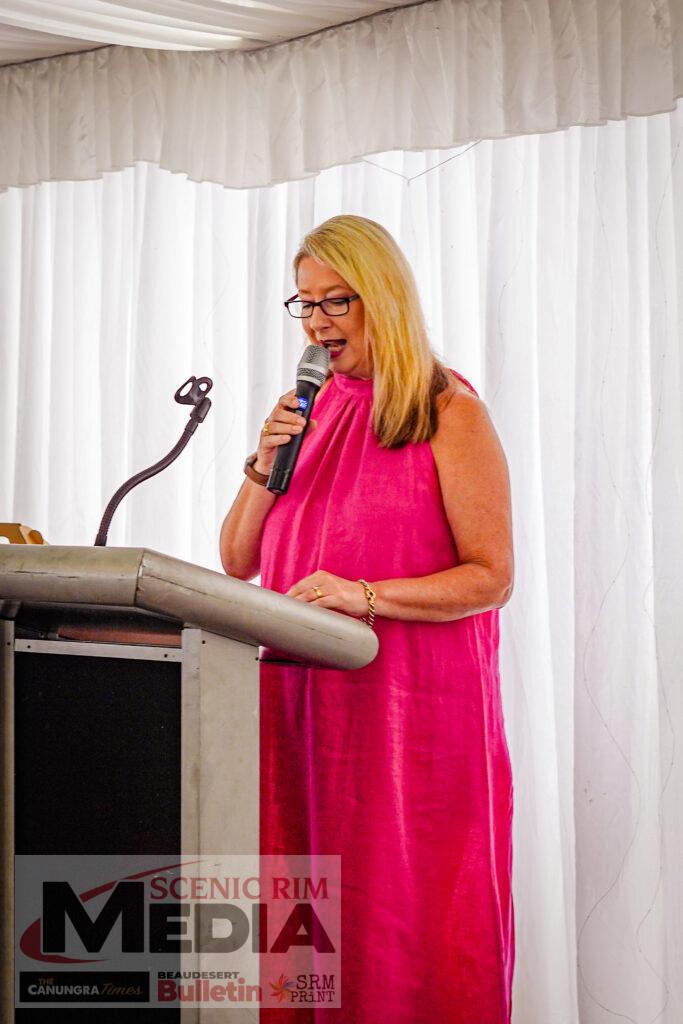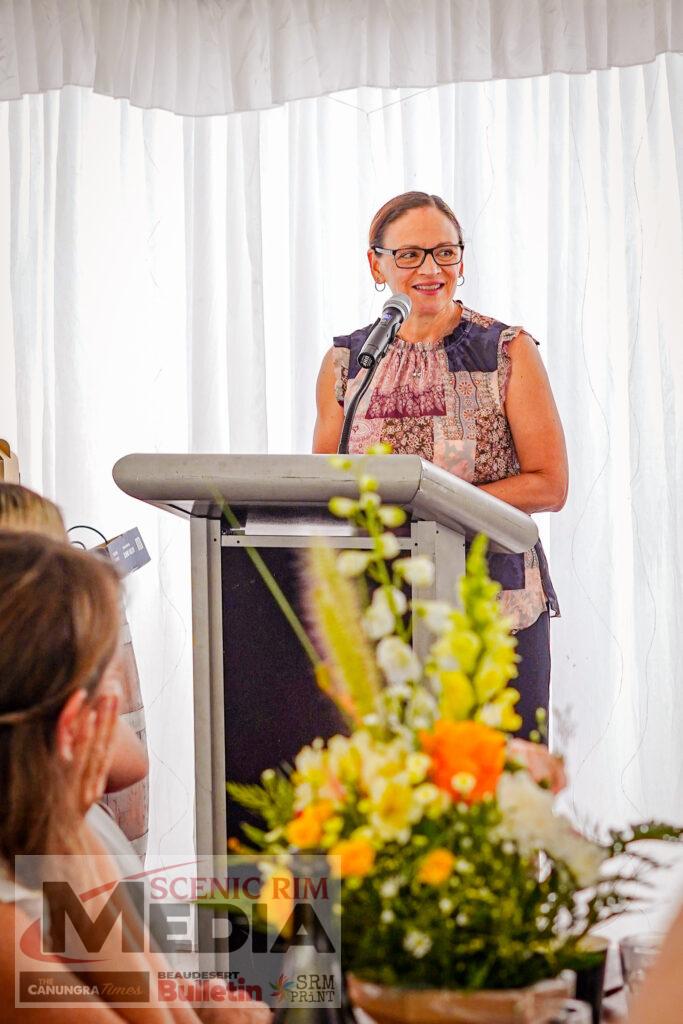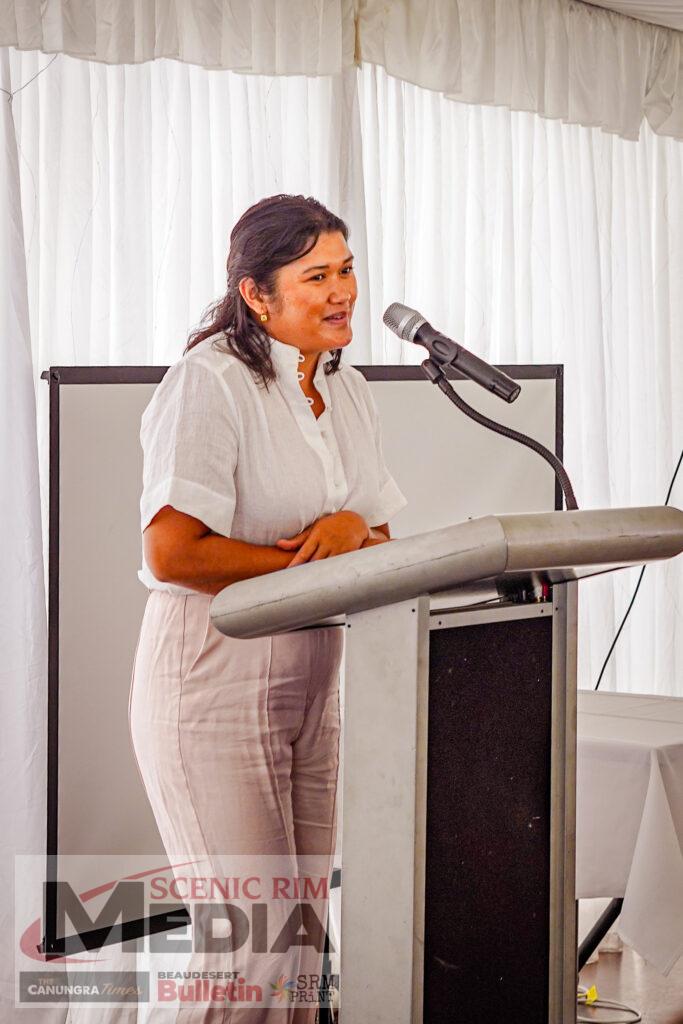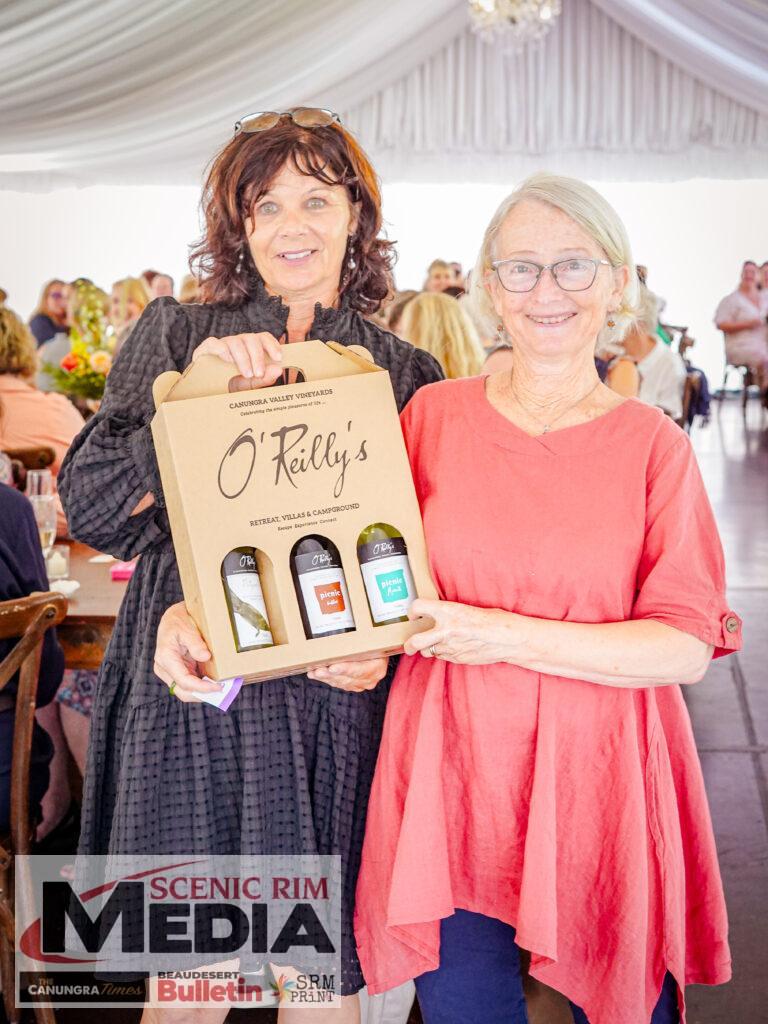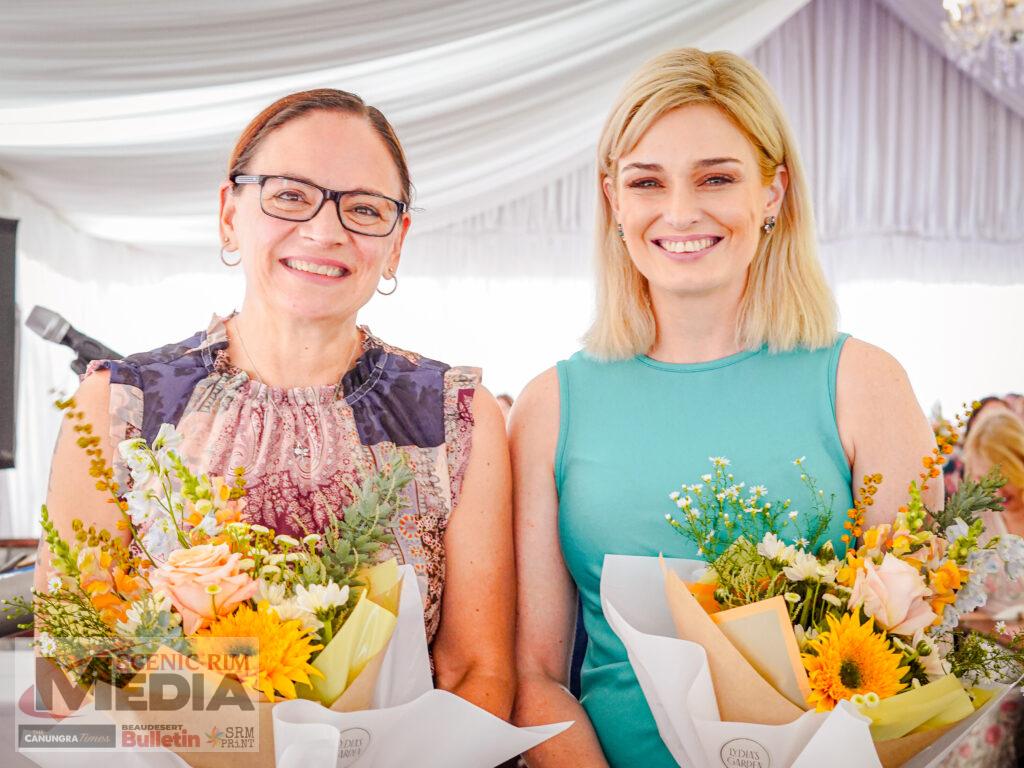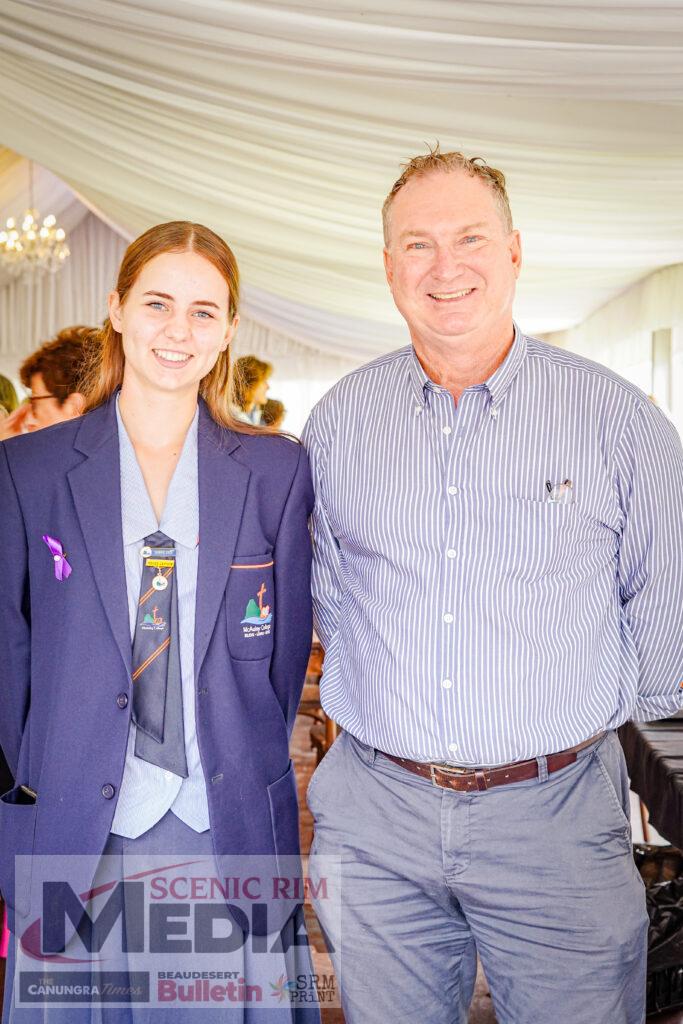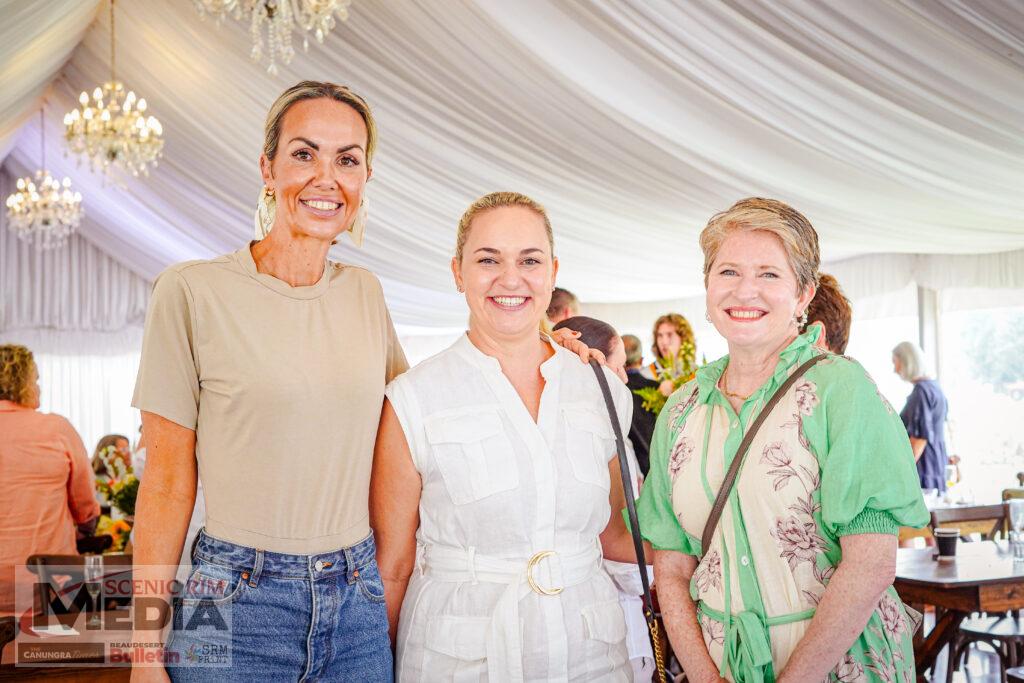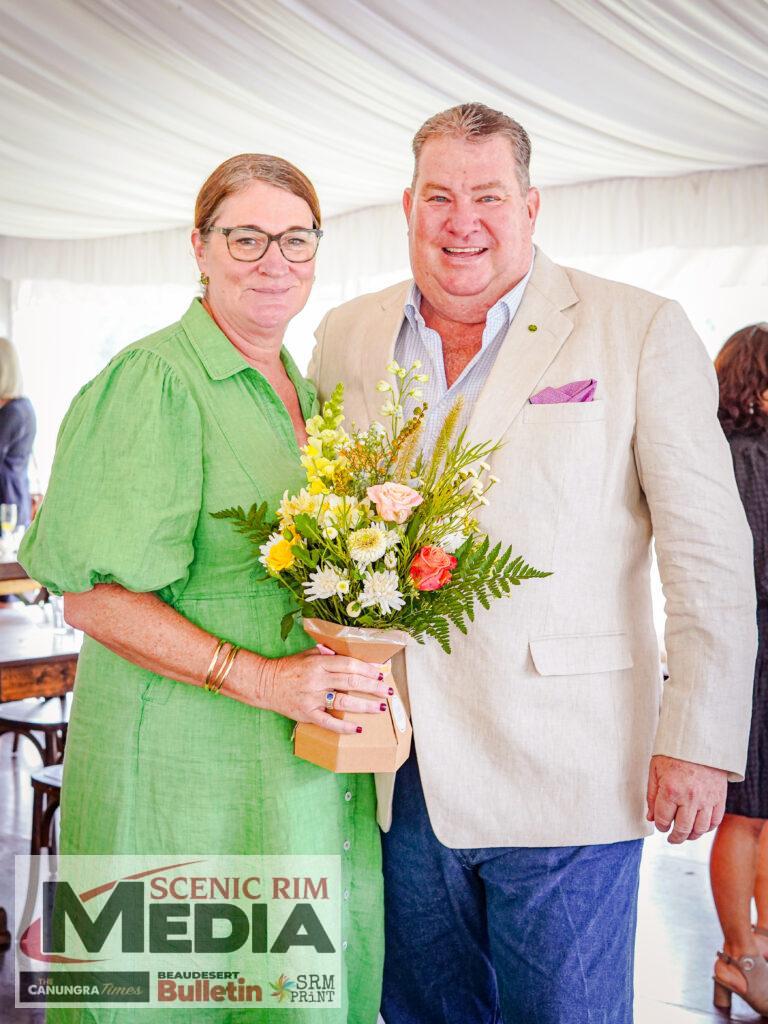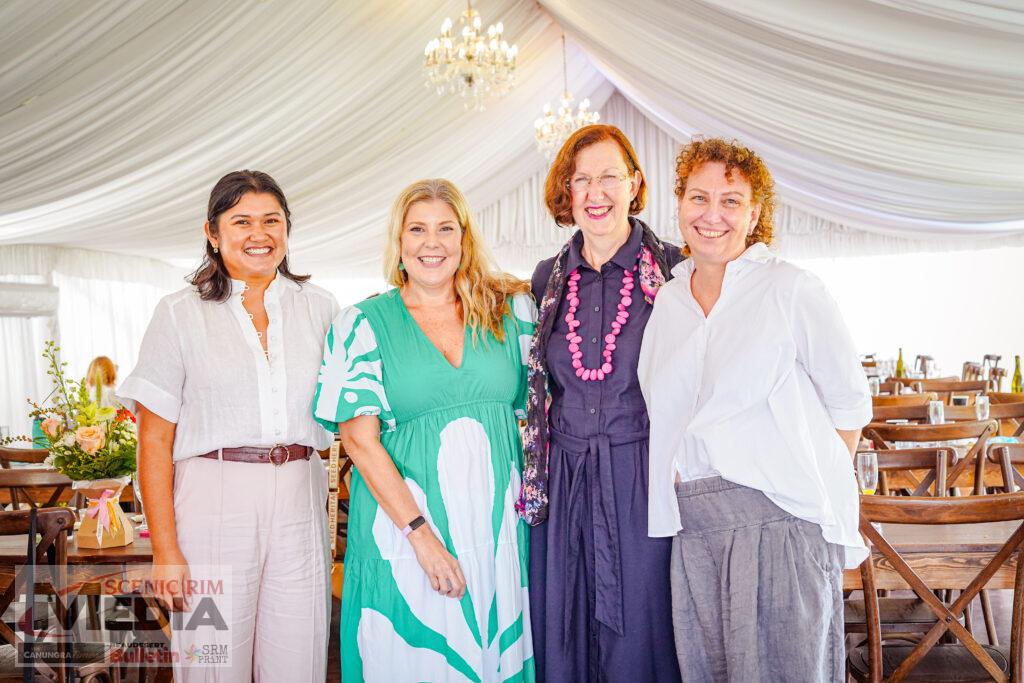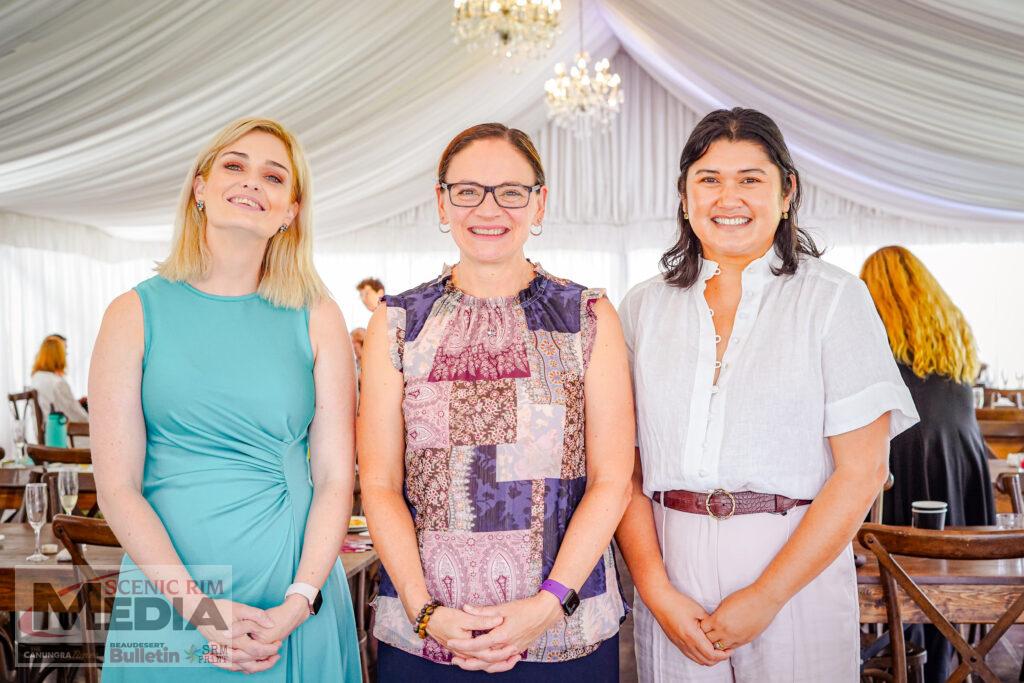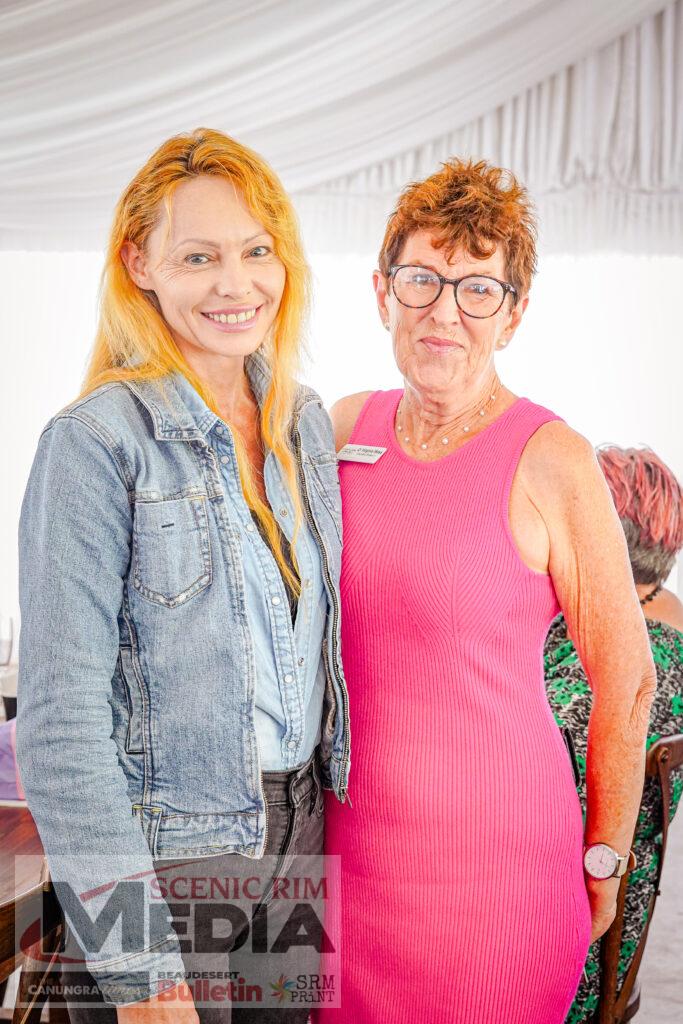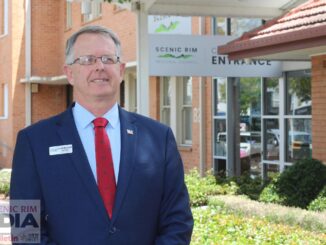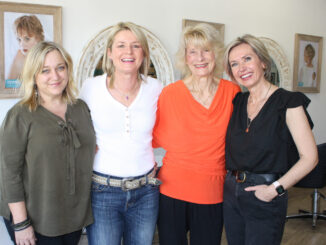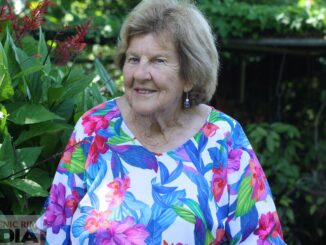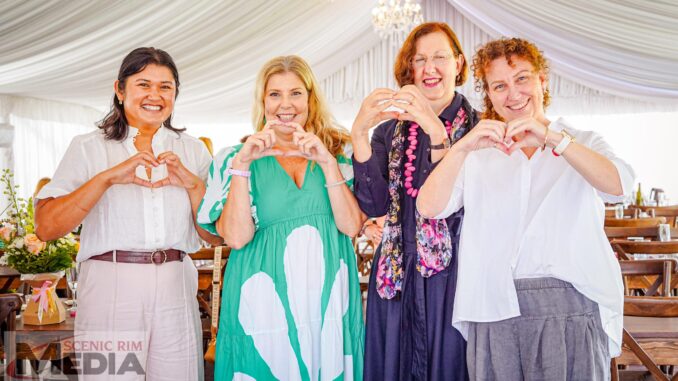
Photo gallery below, photos by Katie O’Brien.
WAR zones have traditionally been the domain of men, so the story of a mother, nurse, Zumba instructor and RAAF veteran of four international deployments got everyone’s attention at Canungra’s International Women’s Day Breakfast.
Following an informative speech by Queensland Commissioner for Small Business, Dominique Lamb, Sascha Watson had the room hanging on her every word.
Sascha is well known in Canungra as a nurse and community volunteer. After completing a Diploma of Nursing at age 18 she joined the RAAF as a medic.
Eight months later, Sascha was in a camouflage uniform, ballistic body armour and a Kevlar helmet, weapon loaded, on board the HMAS Jervis Bay arriving in the first push to East Timor.
“The wharf was on fire, city in chaos, people running everywhere, and more militia than we had ammunition, surrounding us.”
They had no power, no water, and had to dig latrines.
“It wasn’t all bad though, one of my fondest memories of my time in the service was the opportunity to deliver a baby boy and ensure that both he and his mother were safe for a short time,” recalled Sascha.
The recruiting posters had said everyday was an adventure and she found that to be true.
On February 12, 2004, Sascha was at RAAF Base Amberley, when the noise of the crash alarm sounded. This meant an aircraft had crashed or was in imminent danger of crashing.
A Blackhawk helicopter flying out of Oakey had crashed with eight people on board. There were eight people on board, fortunately without life threatening injuries, but the crash made international headlines.
In 2006 Sascha was sent to Qatar in support of the Australian forces in Iraq, where an aircraft she was on came under fire.
“We couldn’t land the aircraft,” she recounted.
“I started thinking – what do I do if we get hit? What do I do if we hit the ground?”
“I was scared. Then I started thinking – before each deployment you have your picture taken just in case you either die or get captured. ‘Excellent,’ I thought, ‘This is getting very real’.”
Her final deployment was in June 2020 and she headed to the Middle East at short notice.
When she returned, Australia was in the midst of the covid pandemic and she was stuck in Victoria for three months, with her family in Adelaide.
Soon after, she decided to leave the RAAF and now lives in Canungra with her family where she has given up much of her time to do volunteer work, as well as running her own business.
“Community plays such a large part in one’s life,” she says.
“It is where you can feel connected, valued and have a sense of purpose.”
